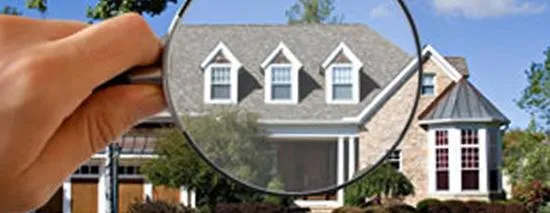
Why a Home Inspection Is Crucial Before Buying a House: Safeguard Your Investment and Save in the Long Run
Purchasing a home is a significant milestone, often accompanied by excitement and anticipation. However, before you get swept up in the dream of homeownership, there’s one critical step you should never overlook: a professional home inspection. Whether you’re buying an older property or a newer one, having a home thoroughly inspected is a vital part of the buying process that can save you from unexpected expenses and stress later on.
Uncovering Hidden Issues in Older Homes
Older homes often come with unique charm and character, but they can also hide potential problems that aren't immediately visible. These could range from outdated wiring, aging plumbing systems, or even structural issues. Over time, homes can also develop issues like foundation cracks, mold, or roof damage—problems that may not be apparent to an untrained eye but could cost you thousands to repair later.
Some common issues that might arise in older homes include:
Electrical systems that don’t meet modern codes
Plumbing leaks or outdated pipes that are prone to corrosion
Foundation cracks or uneven flooring
Roofing damage such as missing shingles or deteriorated materials
Asbestos or lead paint, especially in homes built before 1980
Protect Yourself as a Buyer
A home inspection protects you from making a costly mistake. It provides a detailed report on the condition of the property, including any repairs or replacements that might be needed. This allows you, as the buyer, to make an informed decision—whether it’s to negotiate for repairs, ask for a price reduction, or, in extreme cases, walk away from the deal.
You’re also safeguarding yourself from potential health and safety hazards. For example, issues like mold, pest infestations, or faulty wiring can create unsafe living conditions that might not become apparent until months or years after you’ve moved in.
Saving Money in the Long Run
While the cost of a home inspection might seem like an additional expense upfront, it’s an investment that can pay off significantly. By identifying potential problems early on, you can either address them before closing or avoid buying a property with major underlying issues.
Consider this: skipping a home inspection may save you a few hundred dollars initially, but it could cost you thousands down the road in unexpected repairs. Catching a faulty roof or HVAC system before you buy, for example, can save you from having to replace them yourself shortly after moving in.
Negotiating Power
A home inspection also gives you leverage during the negotiation process. If the inspection report reveals significant issues, you can use this information to negotiate for repairs or a lower purchase price. Sellers are often more willing to make concessions when presented with a professional inspection report that highlights necessary fixes.
Peace of Mind
Finally, a home inspection provides peace of mind. Purchasing a home is one of the most significant financial investments most people will make. Knowing the exact condition of the property helps alleviate concerns and gives you confidence in your decision. You’ll feel more secure knowing that you’re not walking into any unpleasant surprises.
Conclusion
In conclusion, a home inspection is an essential step in the home-buying process, particularly for older properties where hidden issues may lurk beneath the surface. By investing in a thorough inspection, you’re protecting your financial investment, safeguarding your health, and potentially saving thousands of dollars in the long run. Don’t let your dream home become a financial burden—ensure you’re making a smart and informed decision with the help of a home inspection.
If you are currently looking to purchase a new home and need financial advice, let us know! We are always here to help.
